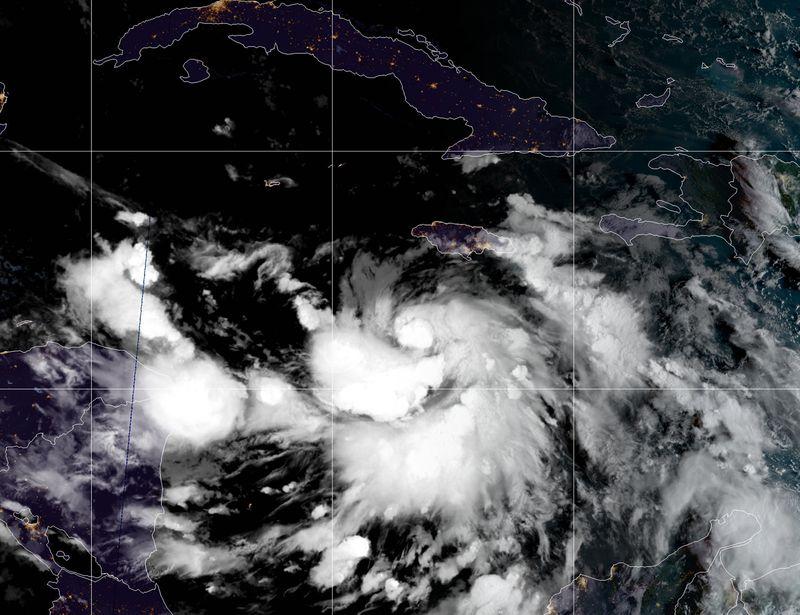
Hurricane Delta, the 25th named Atlantic storm this year, is moving toward the Gulf of Mexico and expected to take aim at the US Gulf Coast this week as a major hurricane, the US National Hurricane Center (NHC) said.
If Delta strikes the US Gulf Coast, it would break a record that dates back to 1916 for the most named storms to hit the United States, another milestone in a year marked by repeated natural disasters, ranging from floods to wildfires to tornados.
The storm was expected to drop heavy rains on Mexico’s Yucatan peninsula and head up the Gulf of Mexico toward landfall between Louisiana and Florida, with catastrophic damage to properties in its path.
Delta has strengthened into a Category Four hurricane on the Saffir-Simpson Hurricane Wind Scale, the US NHC said on Tuesday.
Delta was located about 125 miles (200 km) southwest of Grand Cayman, packing a maximum sustained winds of 130 miles-per-hour (215 km/h), the NHC said. Wind speeds could reach 130 mph (209 km) by Thursday.
Also read: Another Erratic Monsoon Season Ends – Could We Have Predicted It Better?
It was the 25th named storm of the Atlantic hurricane season, which runs from June 1 to November 30.
There have been so many Atlantic storms this year that forecasters have run out of pre-chosen names, turning to the Greek alphabet for the most recent. If Delta hits the coast, it would be the 10th named storm to strike the United States.
“This will be an impactful hurricane,” said Dan Kottlowski, lead hurricane forecaster at AccuWeather. Warm water and a lack of wind shear will allow the storm to quickly strengthen, he said.
Delta’s winds also could bring 30-foot seas to areas off the Louisiana coast, Kottlowski said, affecting shipping traffic and oil and gas production.
Gulf of Mexico oil and gas producers Chevron Corp, BP PLC, BHP Group and Occidental Petroleum have begun removing staff and securing offshore facilities.
Cuba’s western province of Pinar del Rio and the Island of Youth also hunkered down in expectation of tropical storm conditions. Cuba’s Civil Defense ordered schools there to close, suspended local transportation and announced the evacuation of coastal areas at risk of a storm surge.
This year’s named storms so far have cost about $9 billion in insured losses, compared with $75 billion in 2017, according to Andrew Siffert, a vice president at reinsurance brokerage BMS Group.

